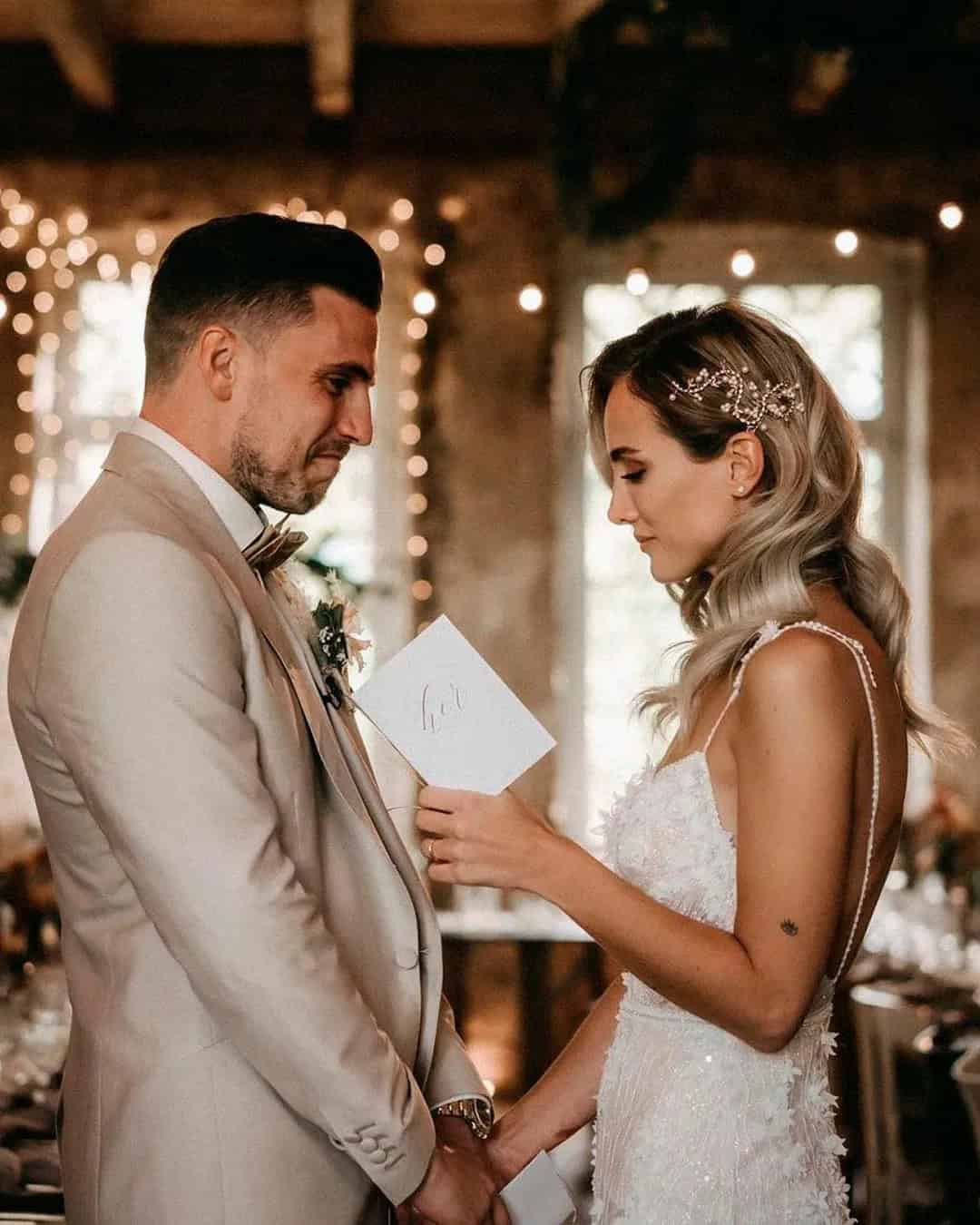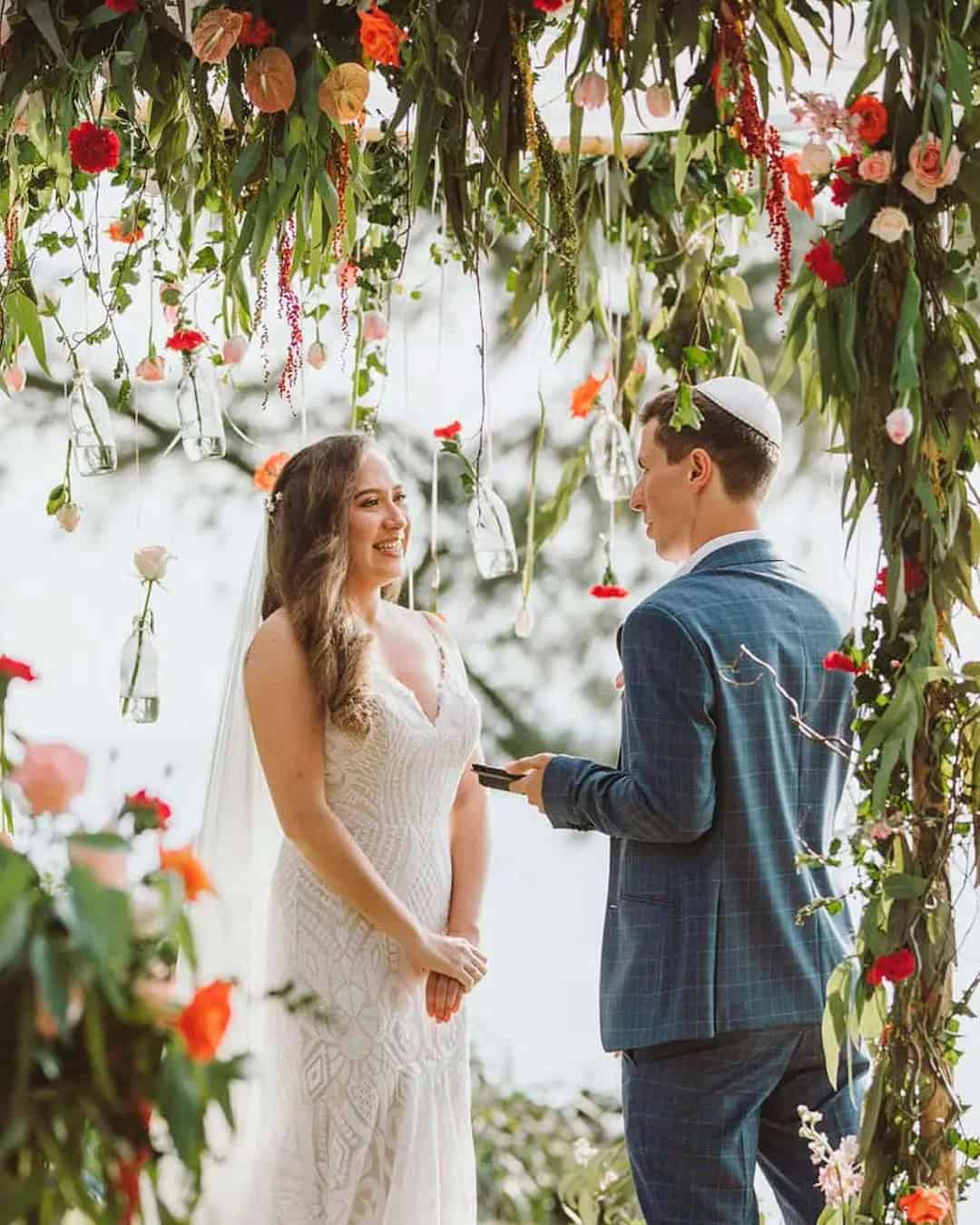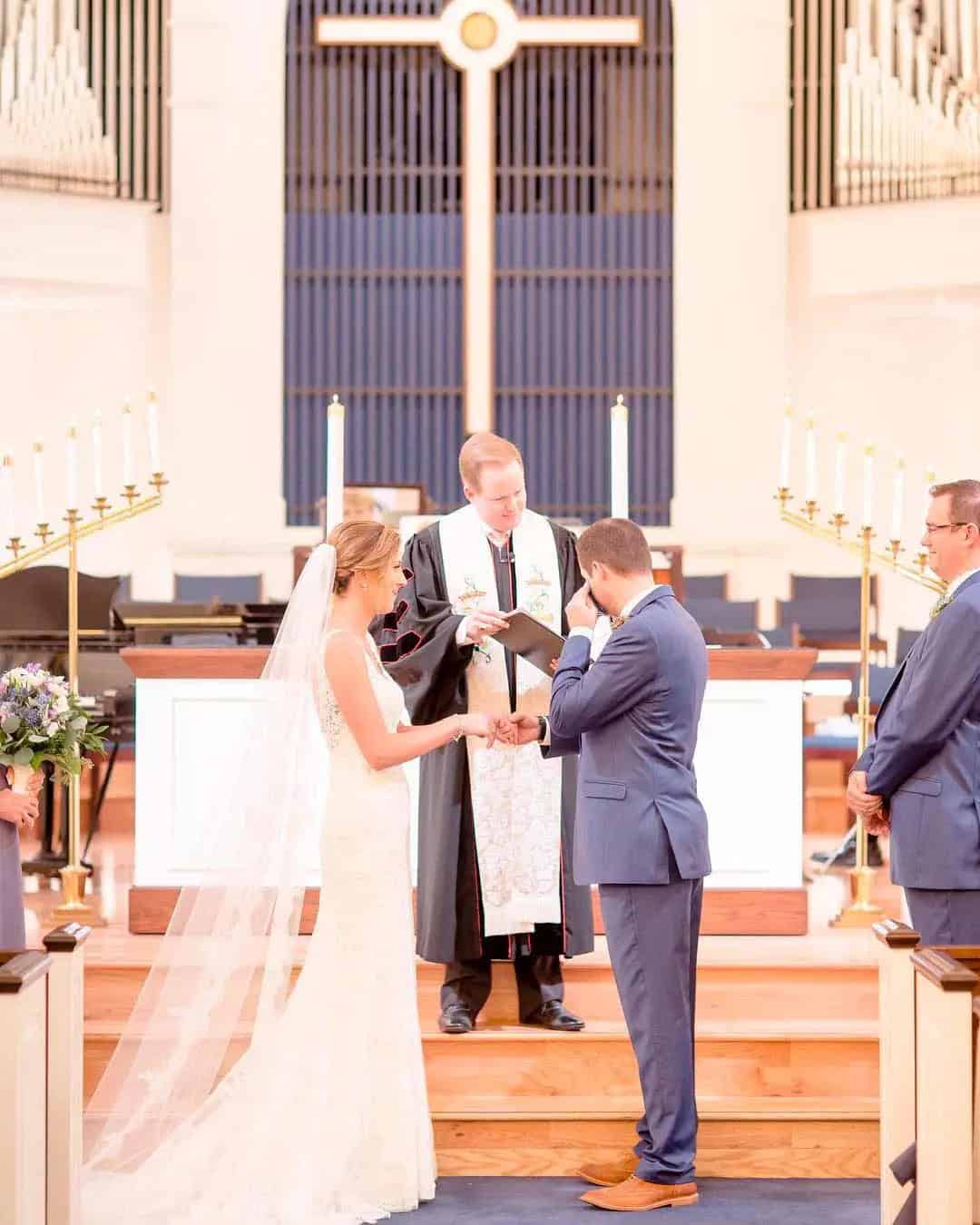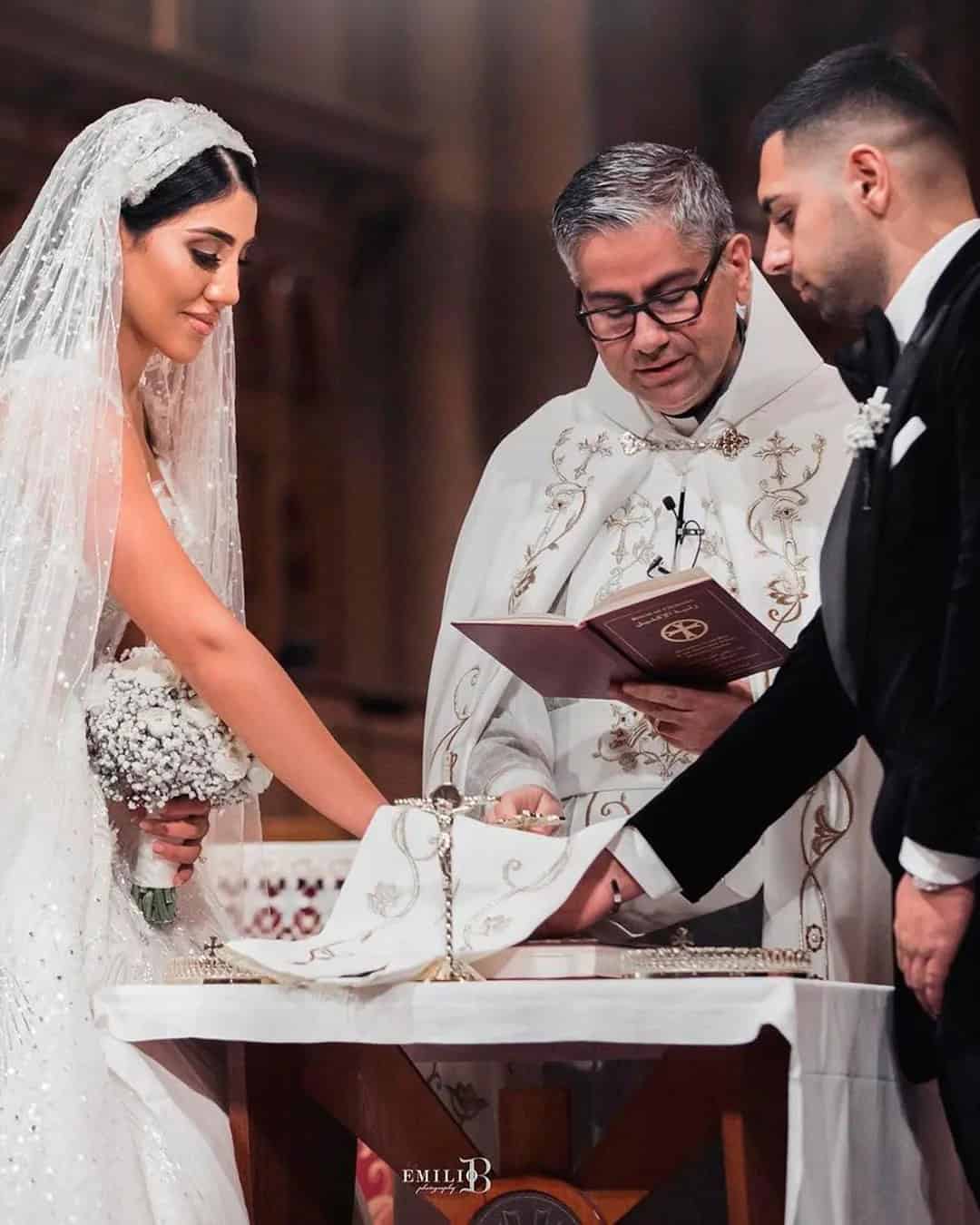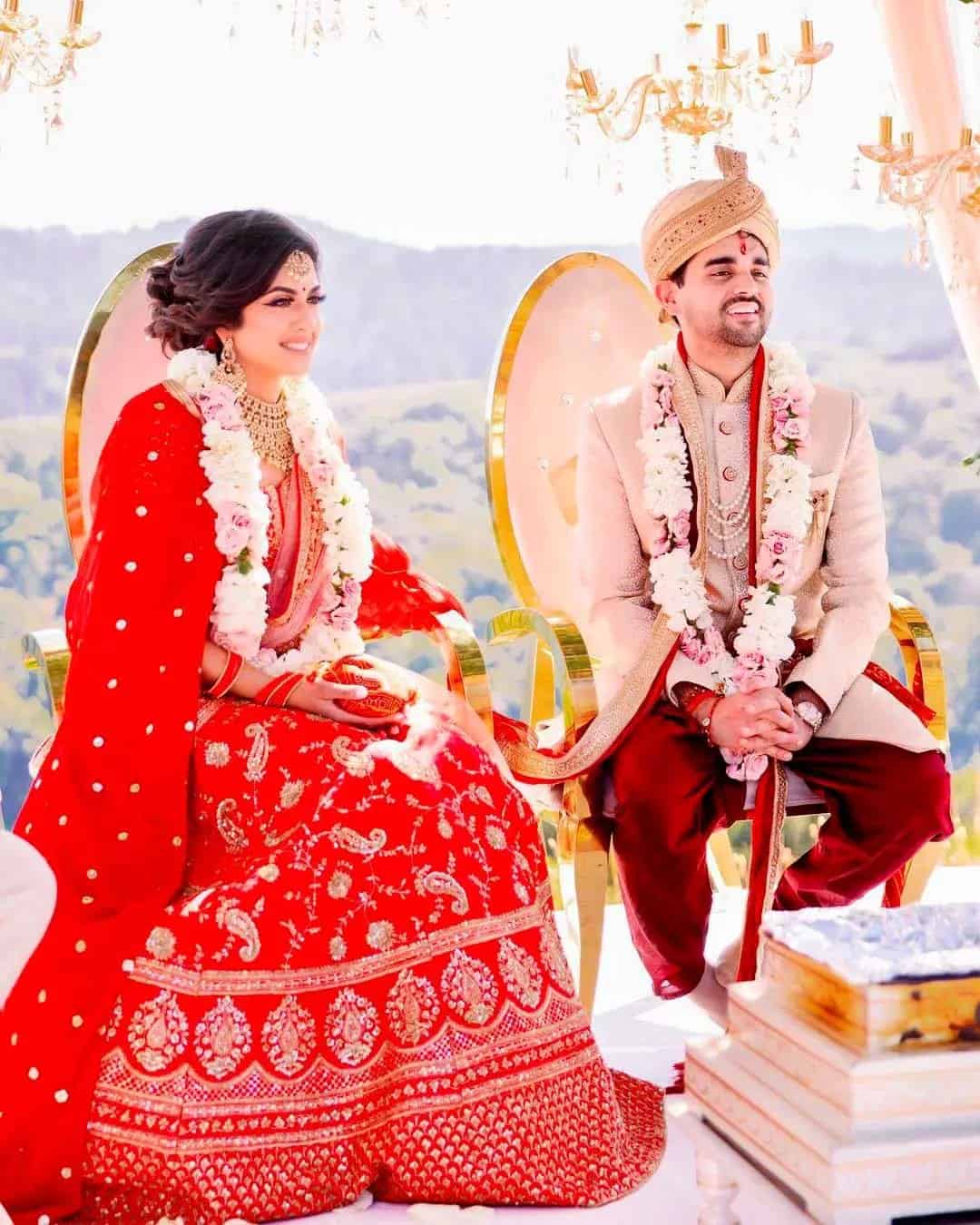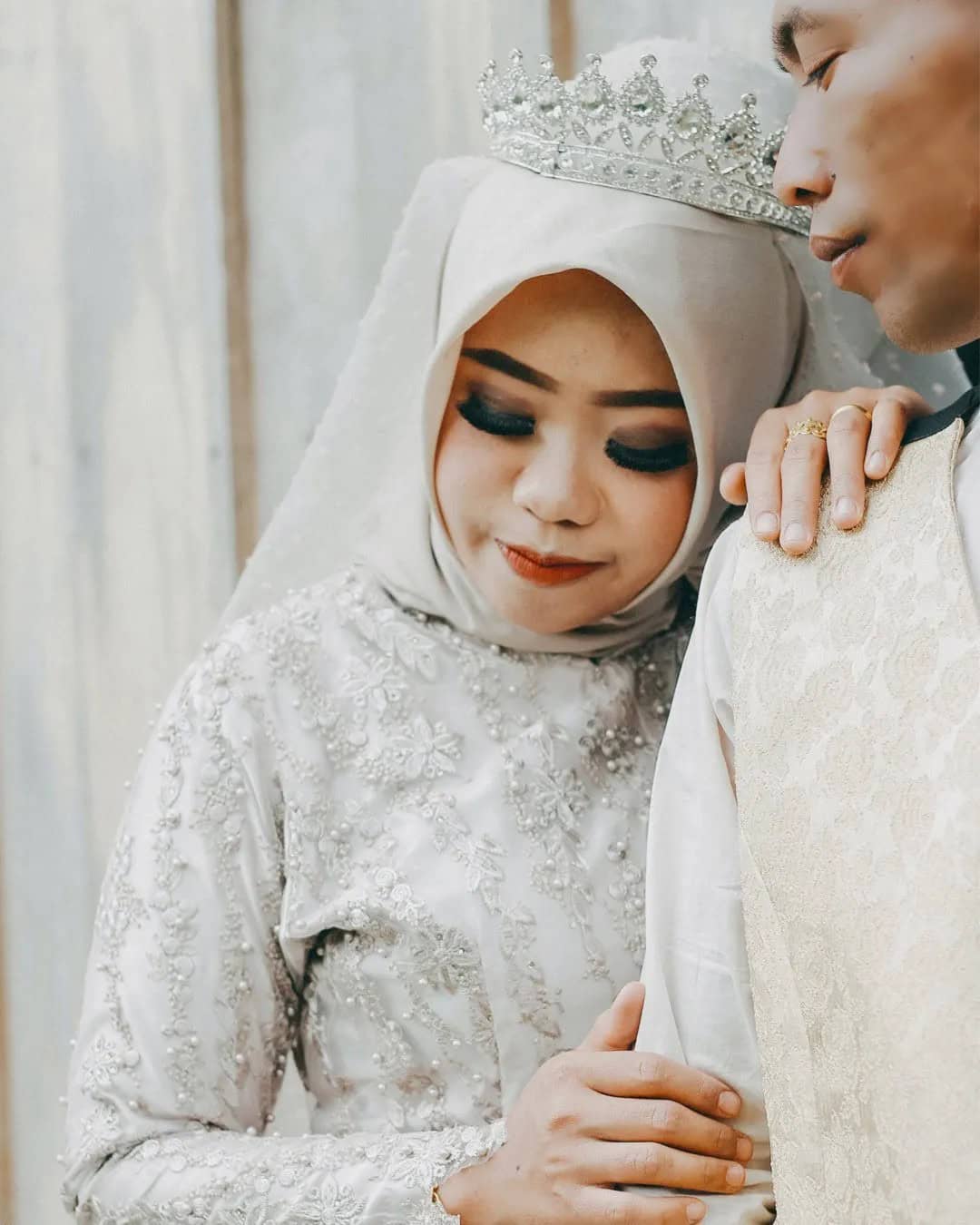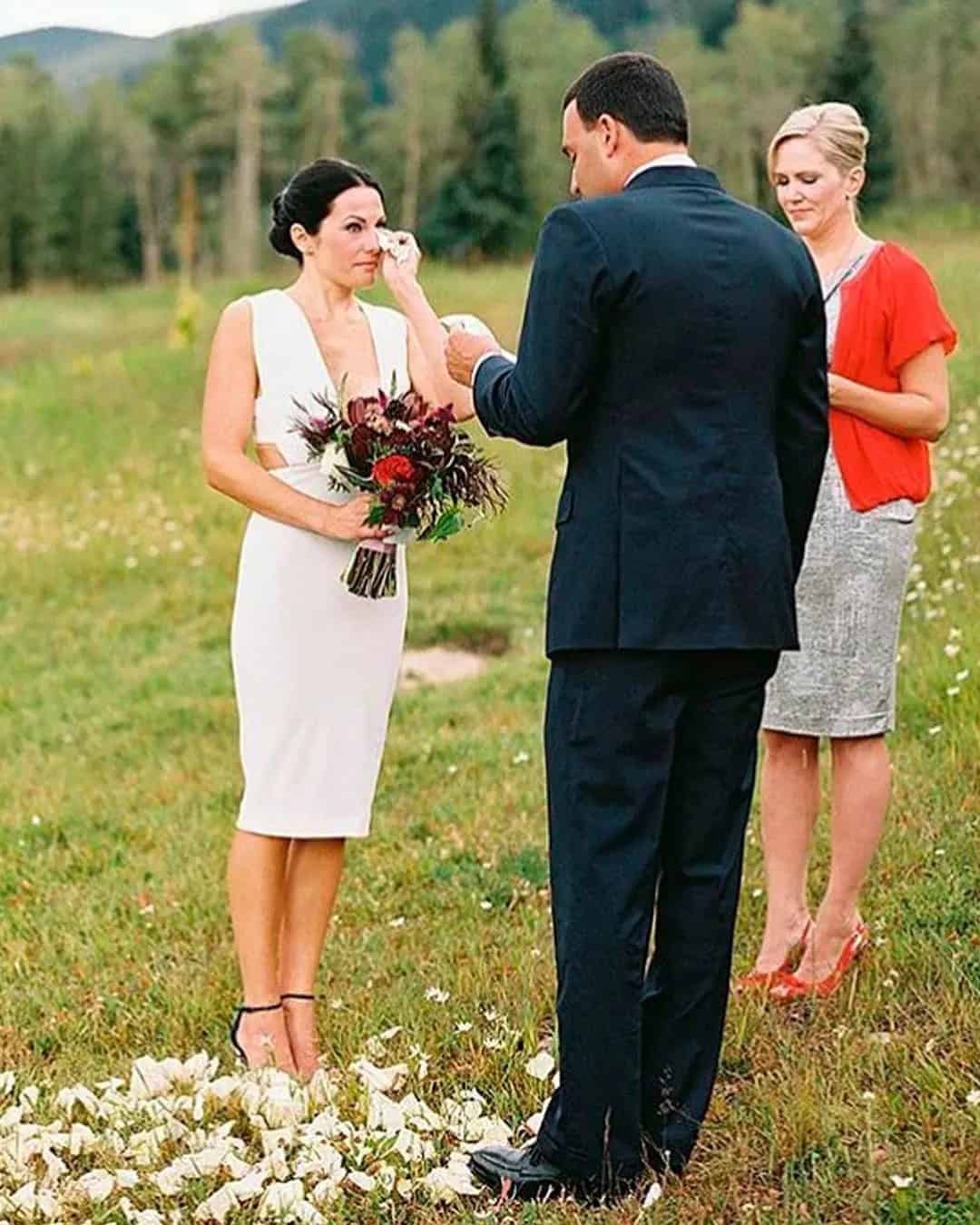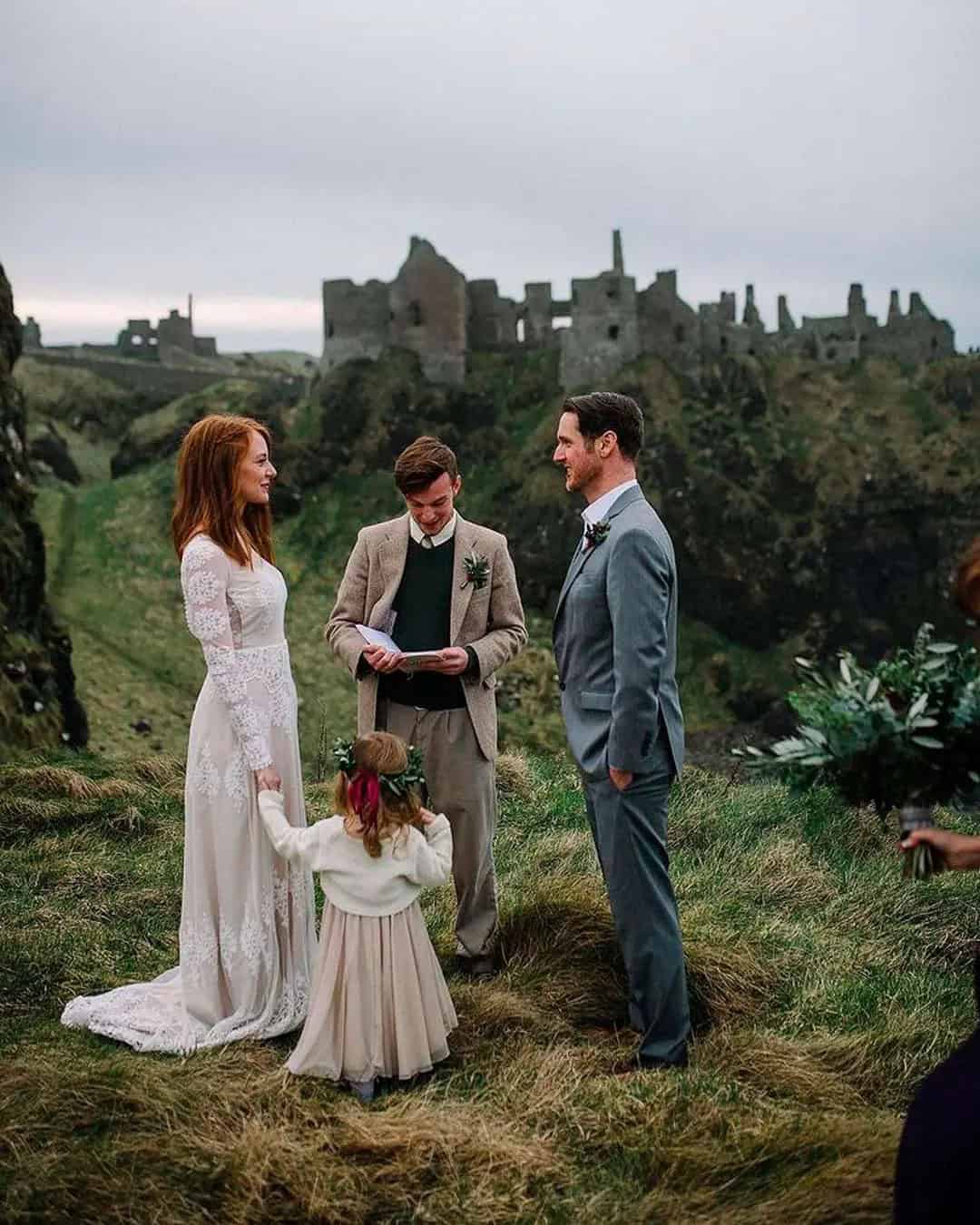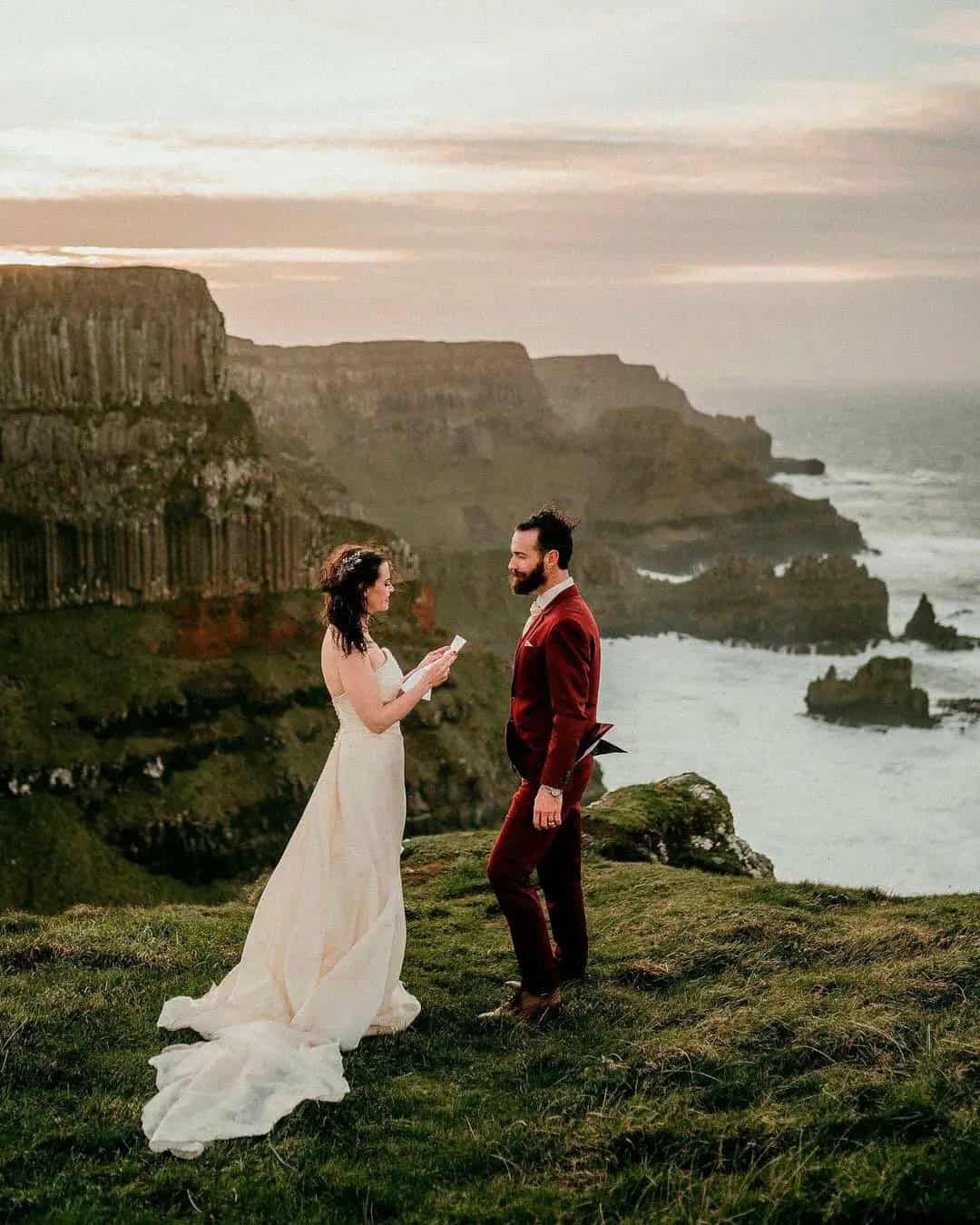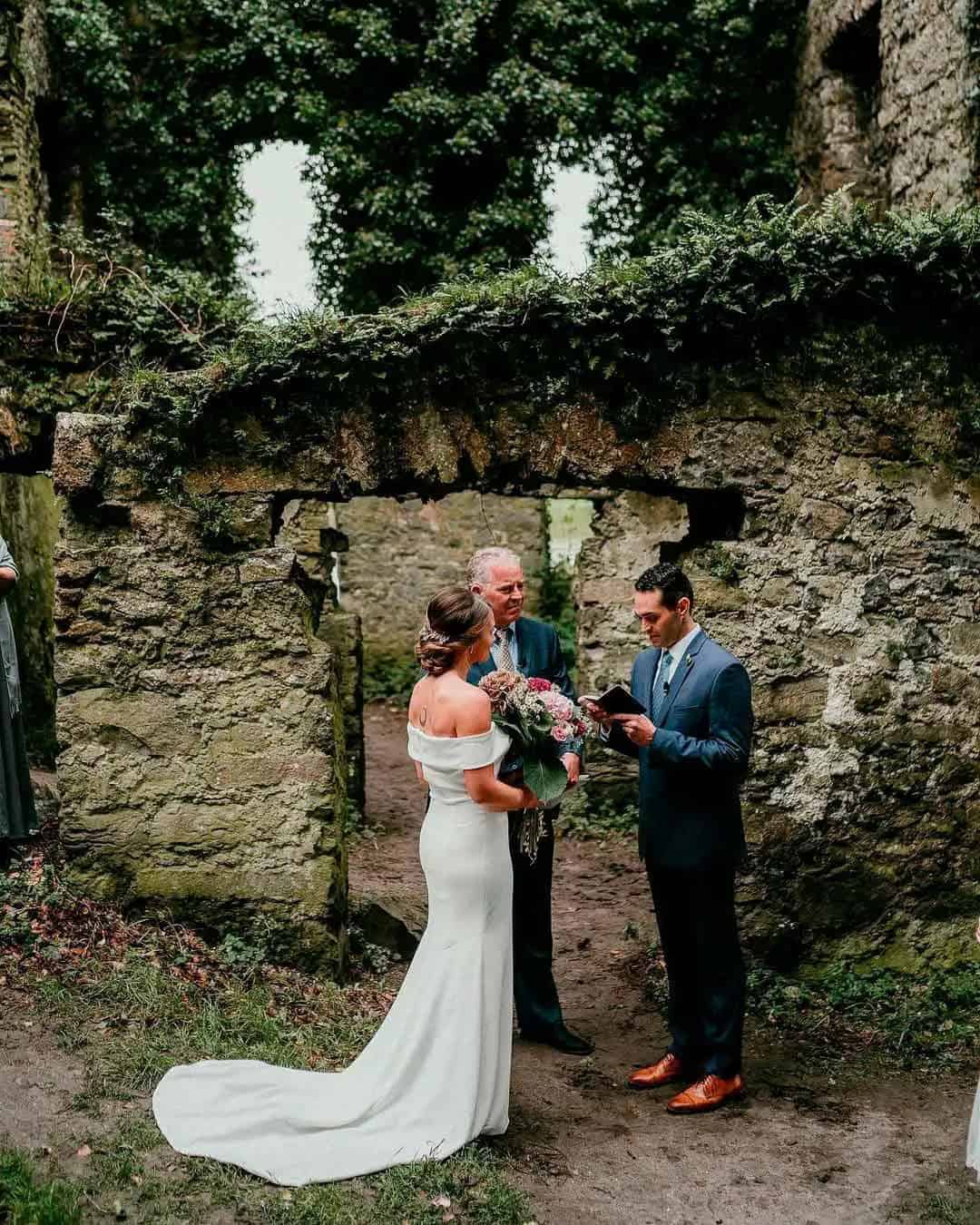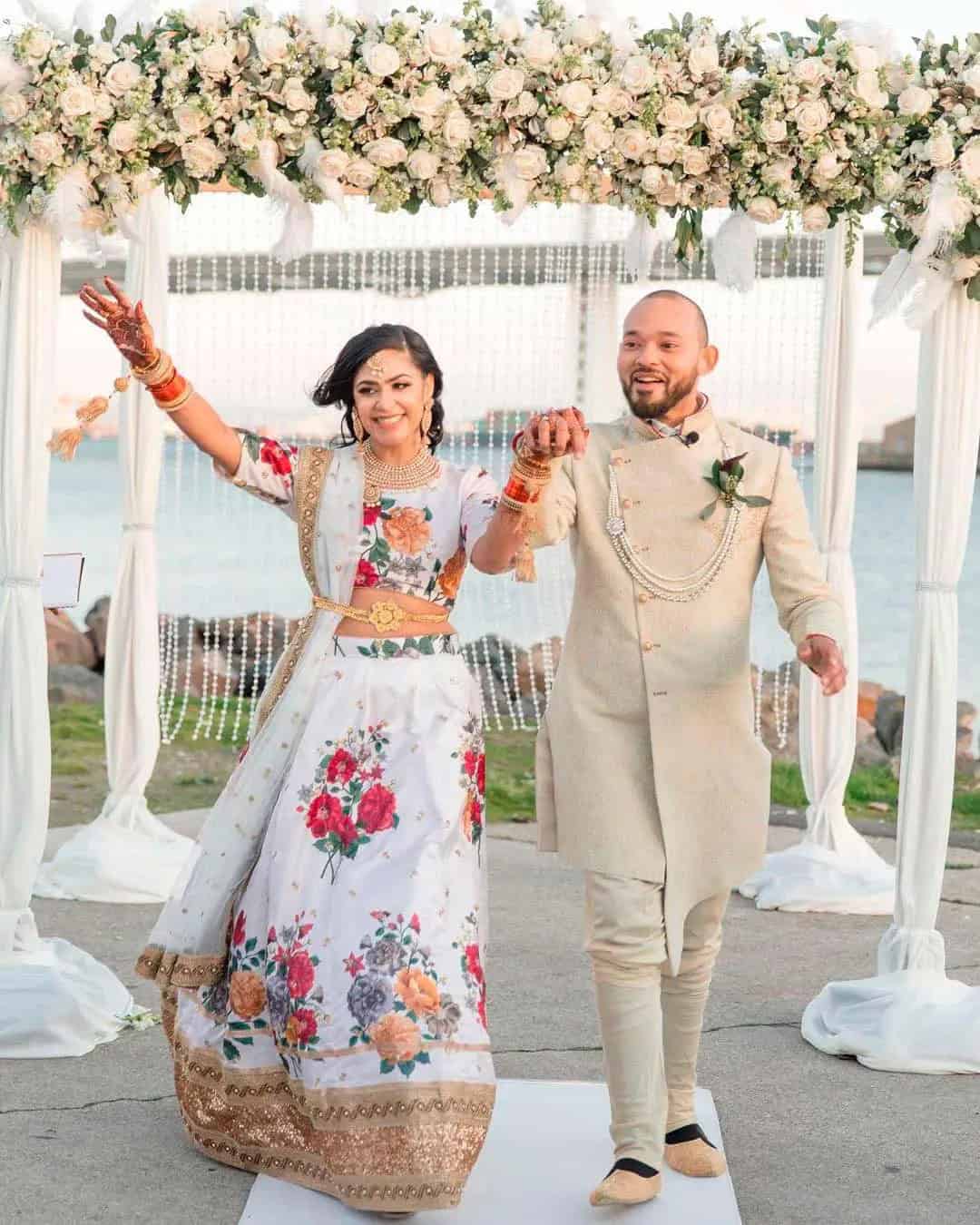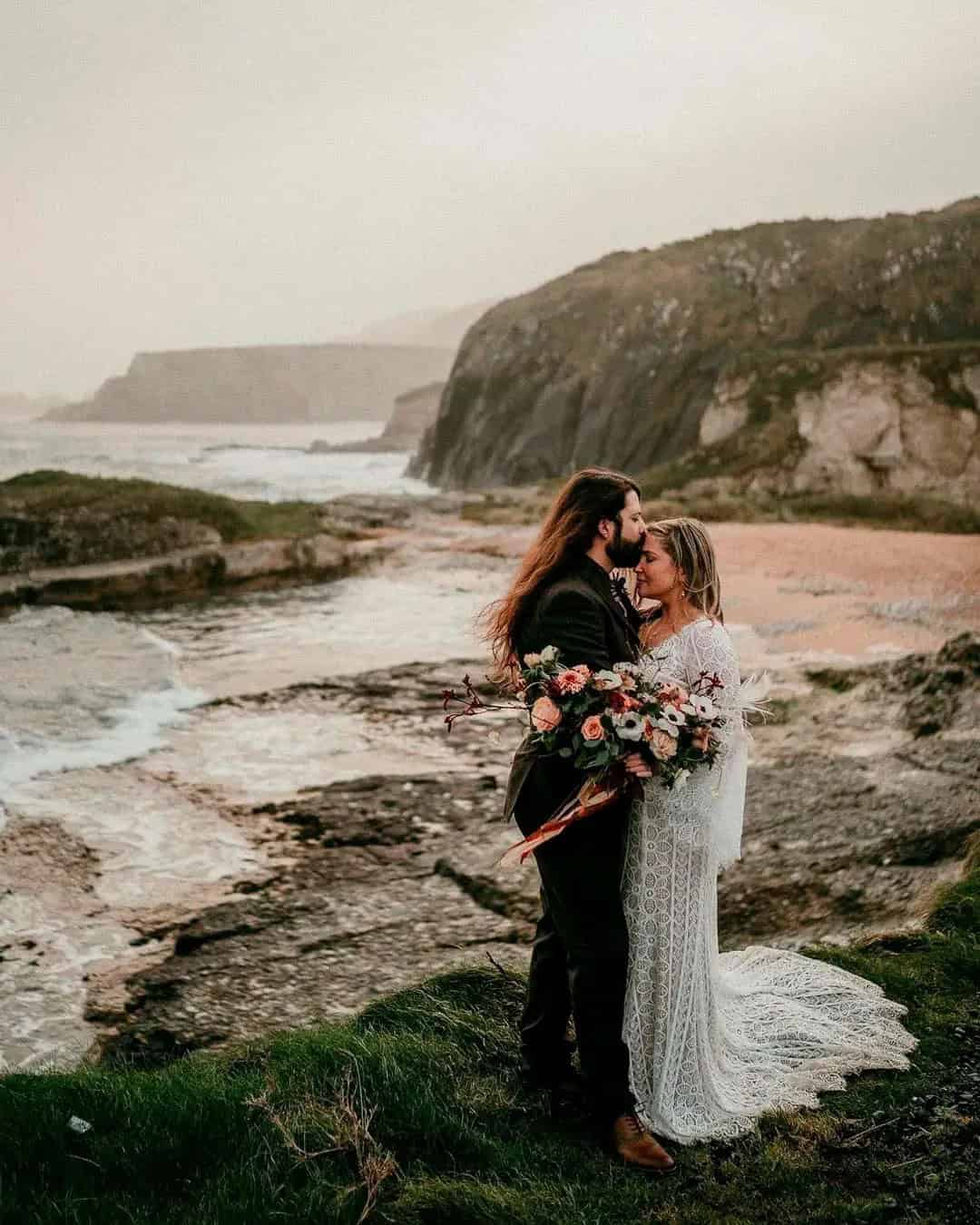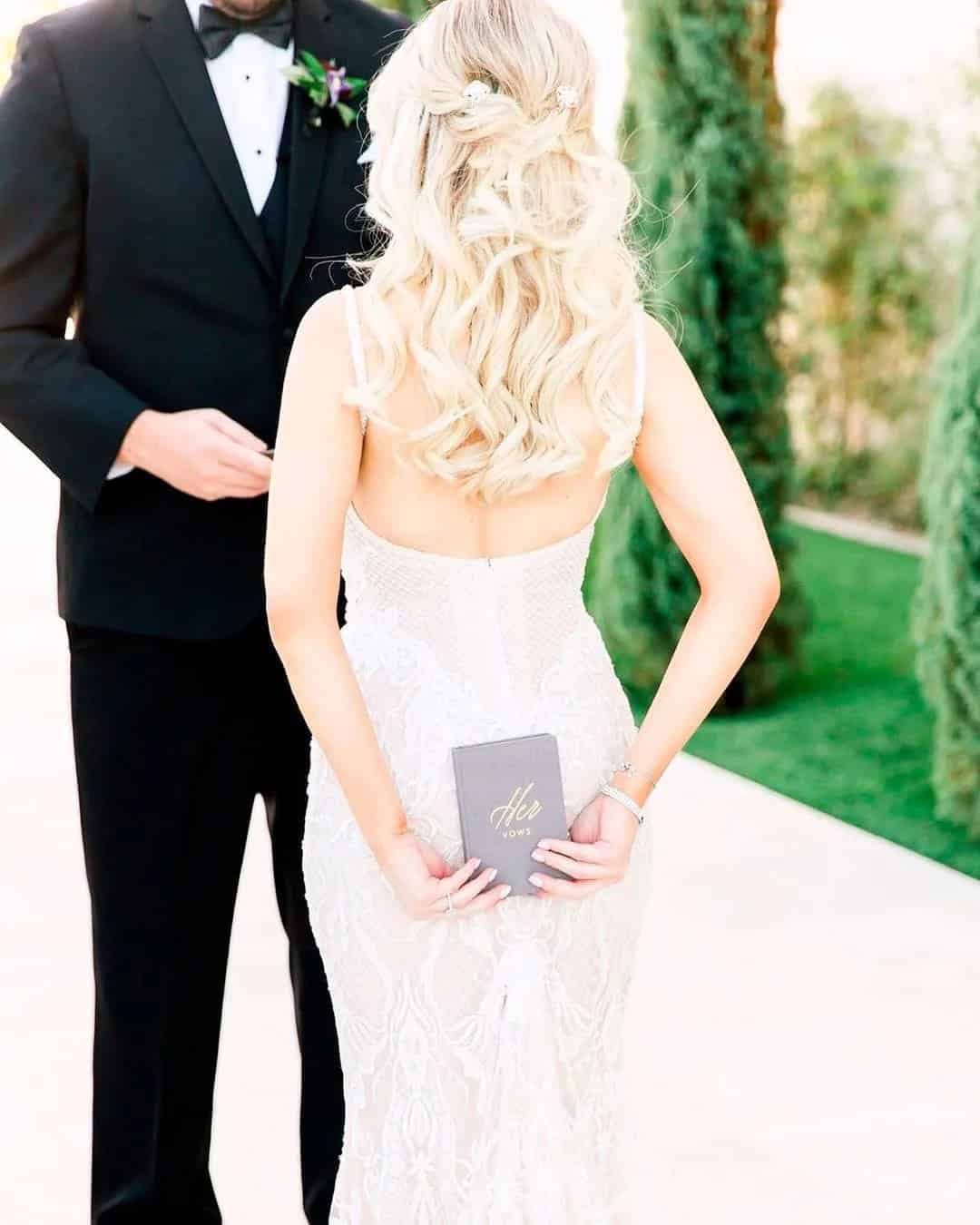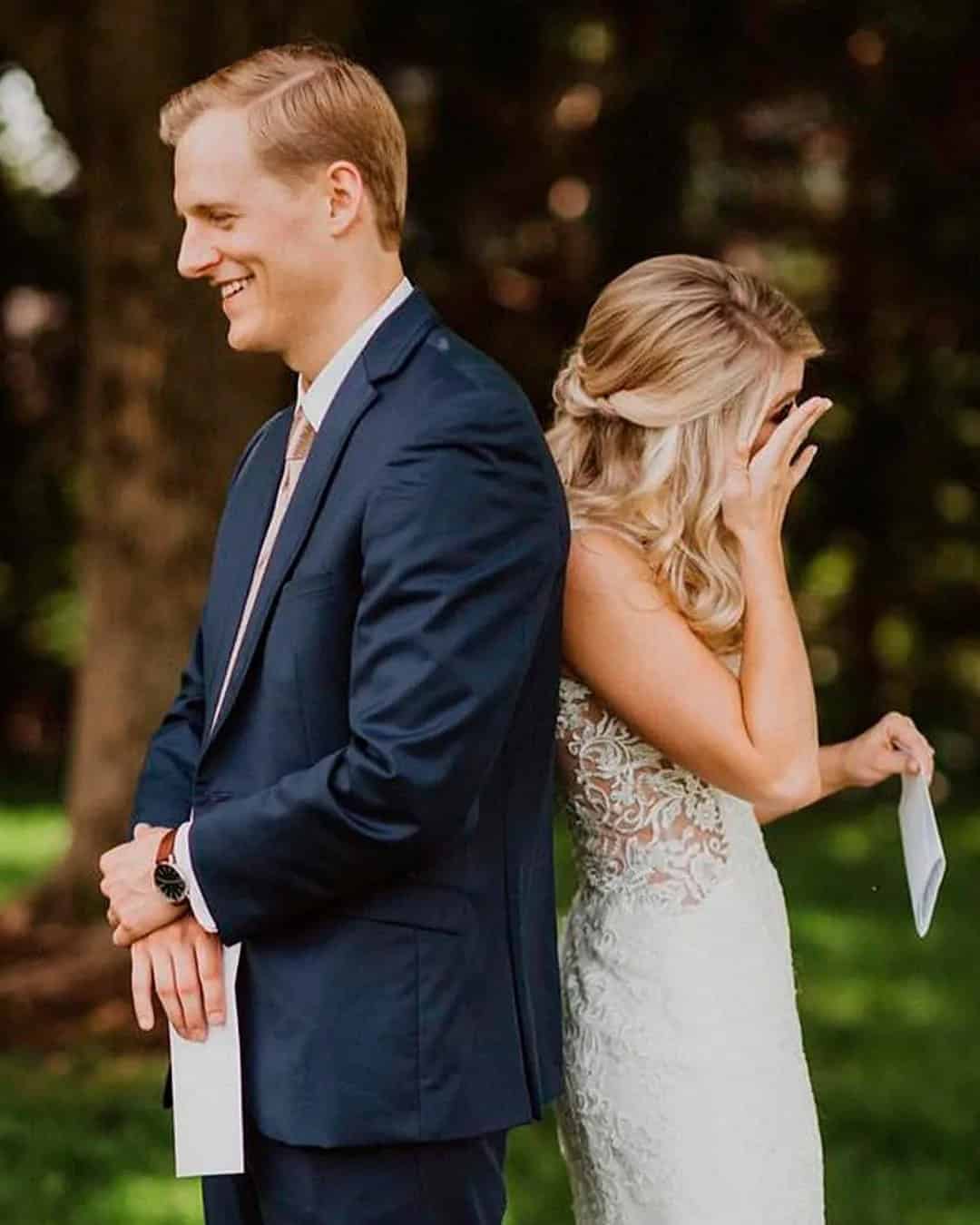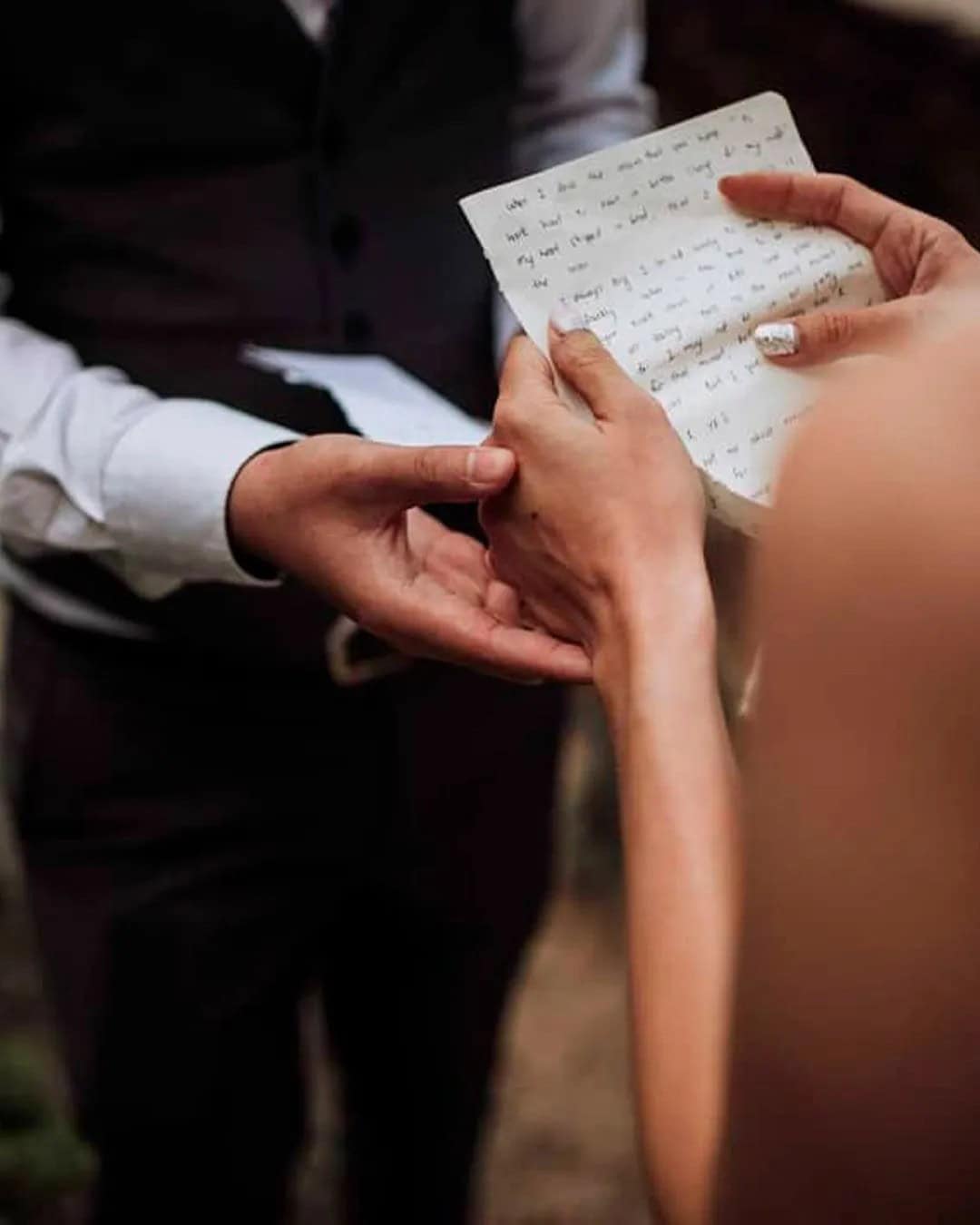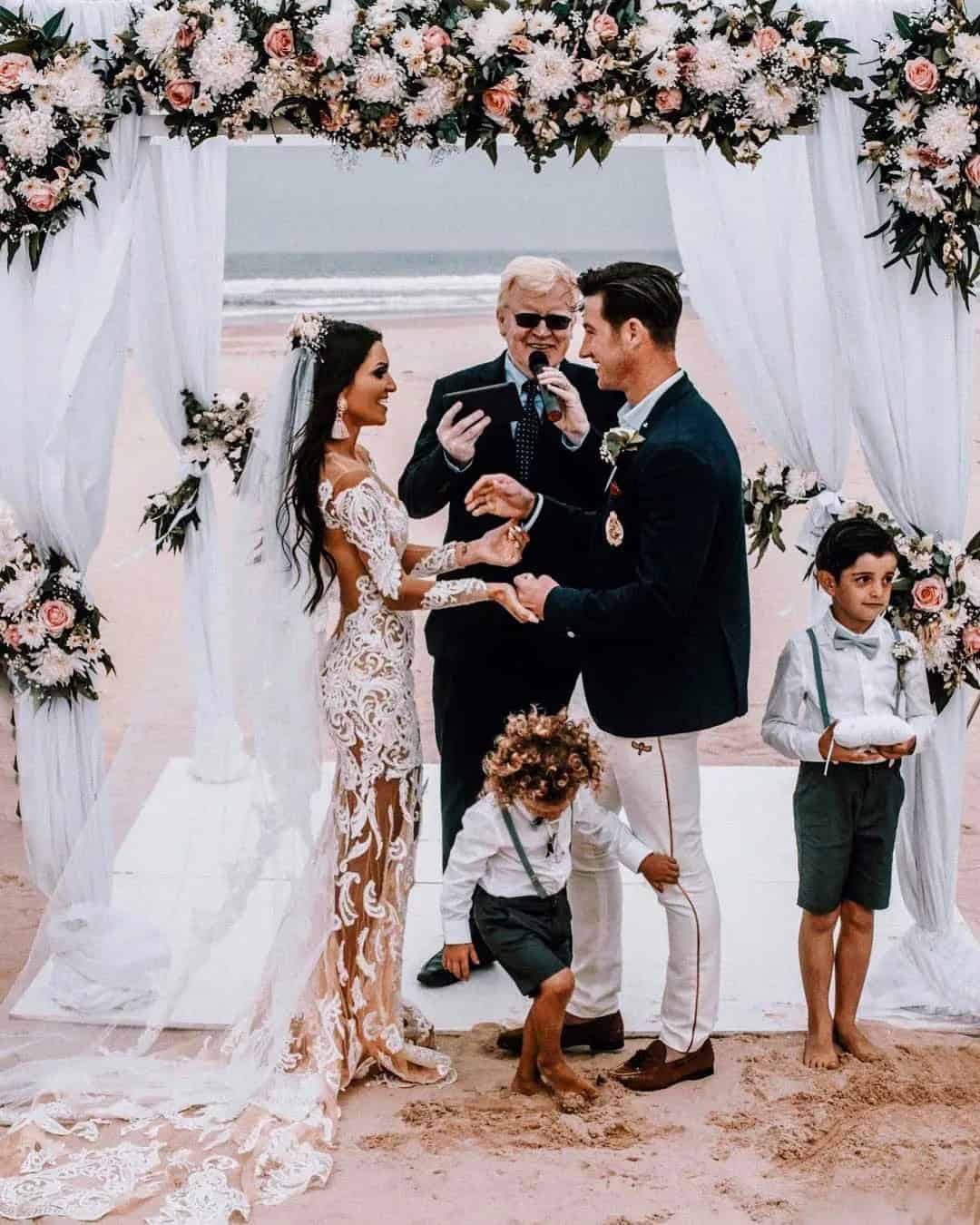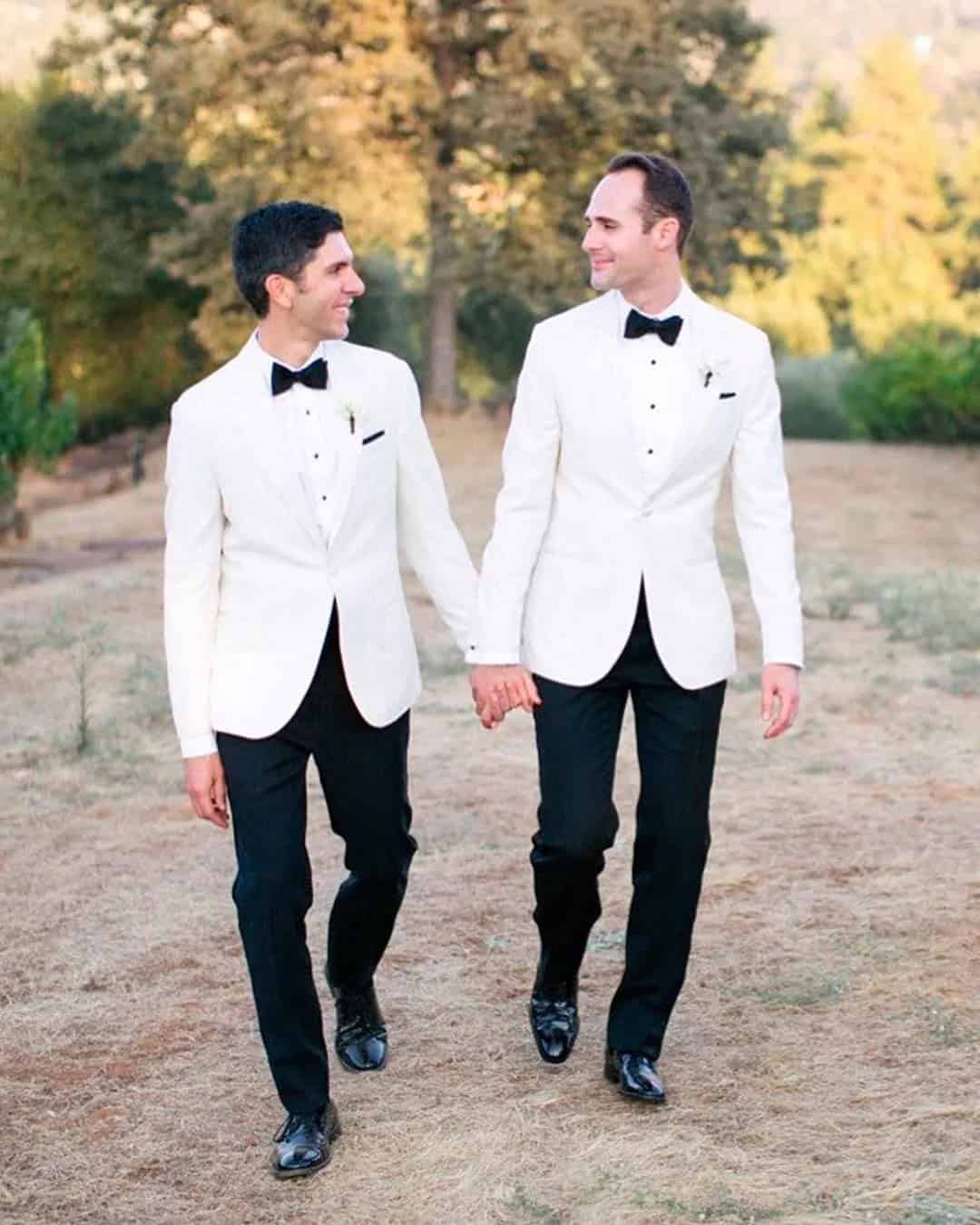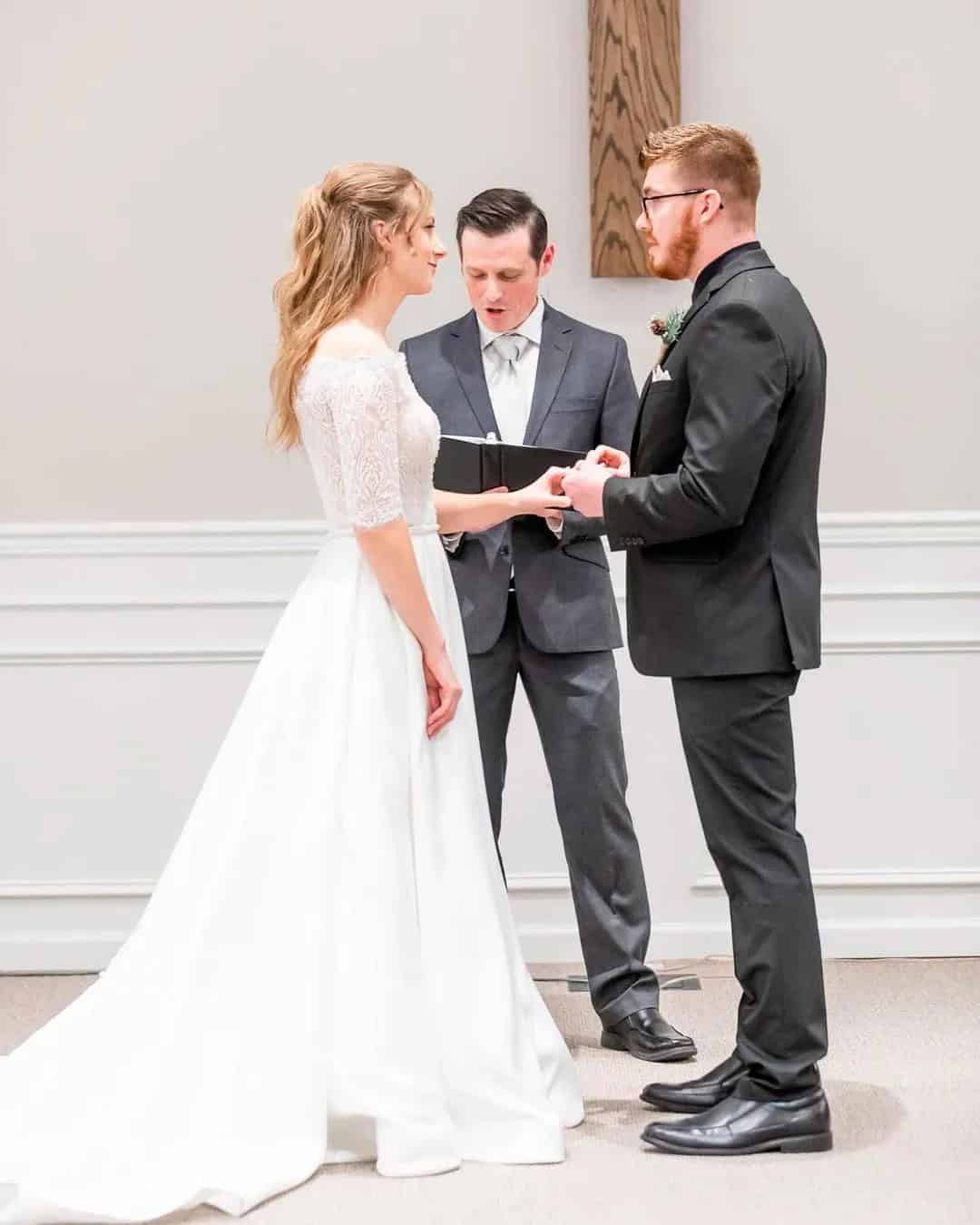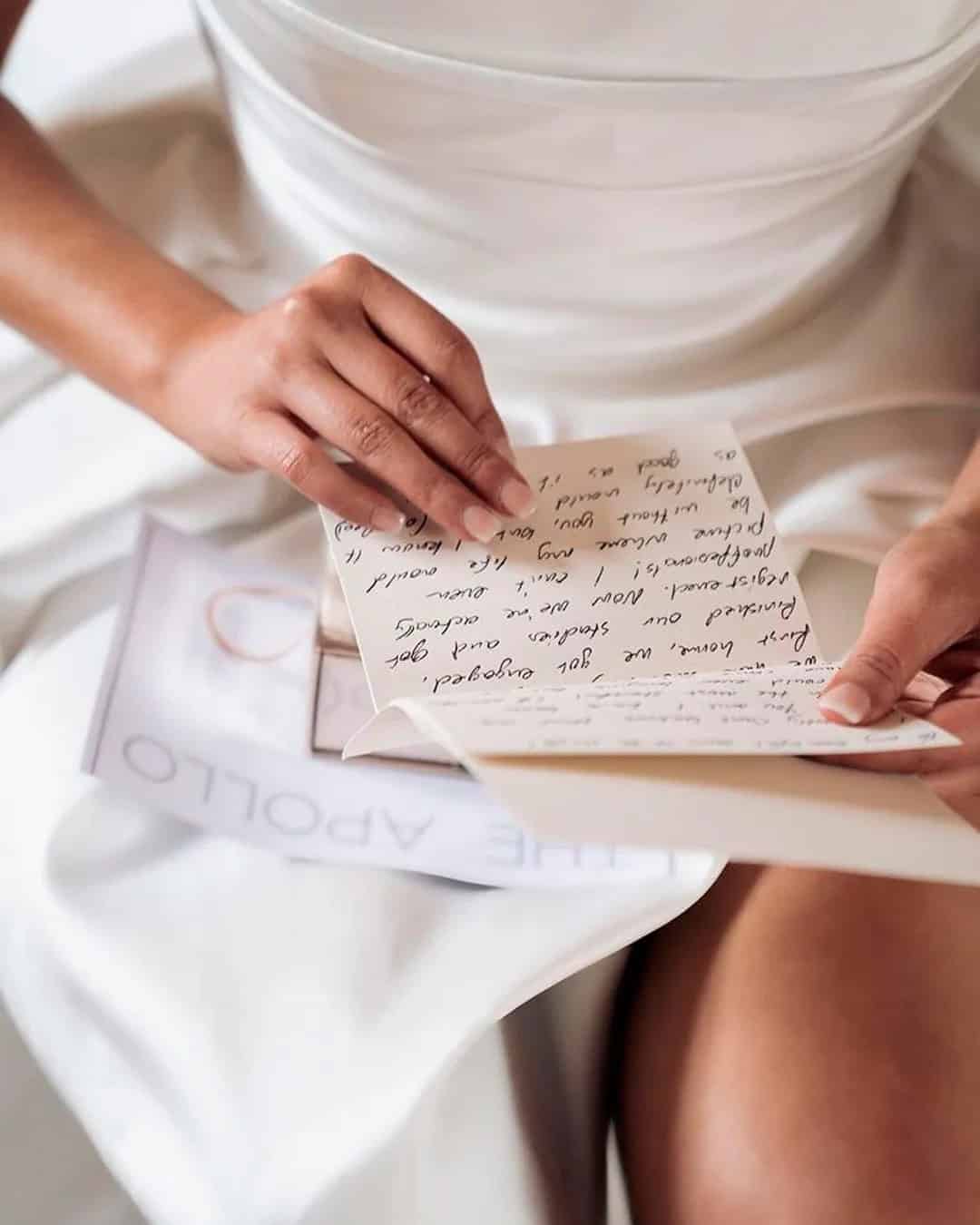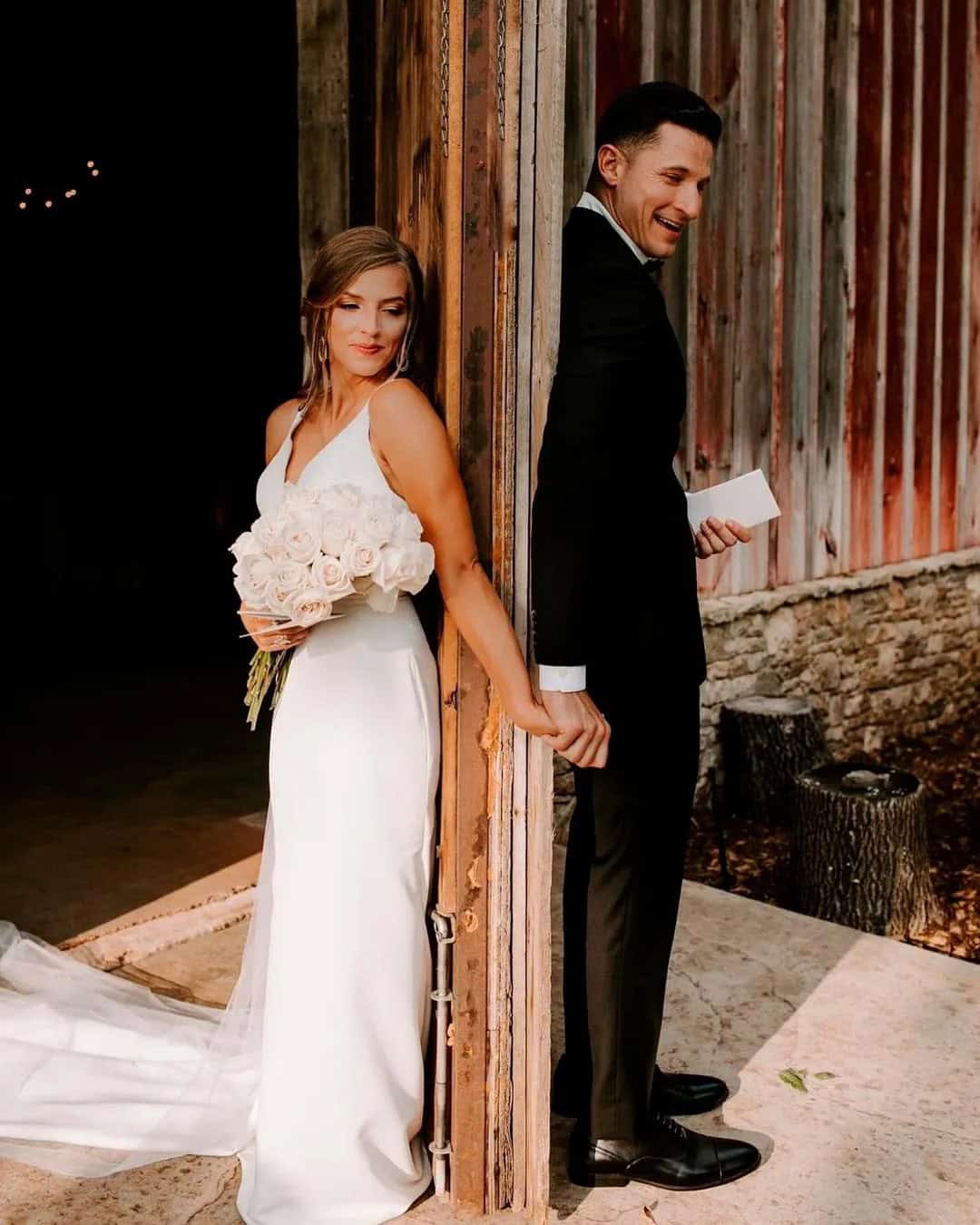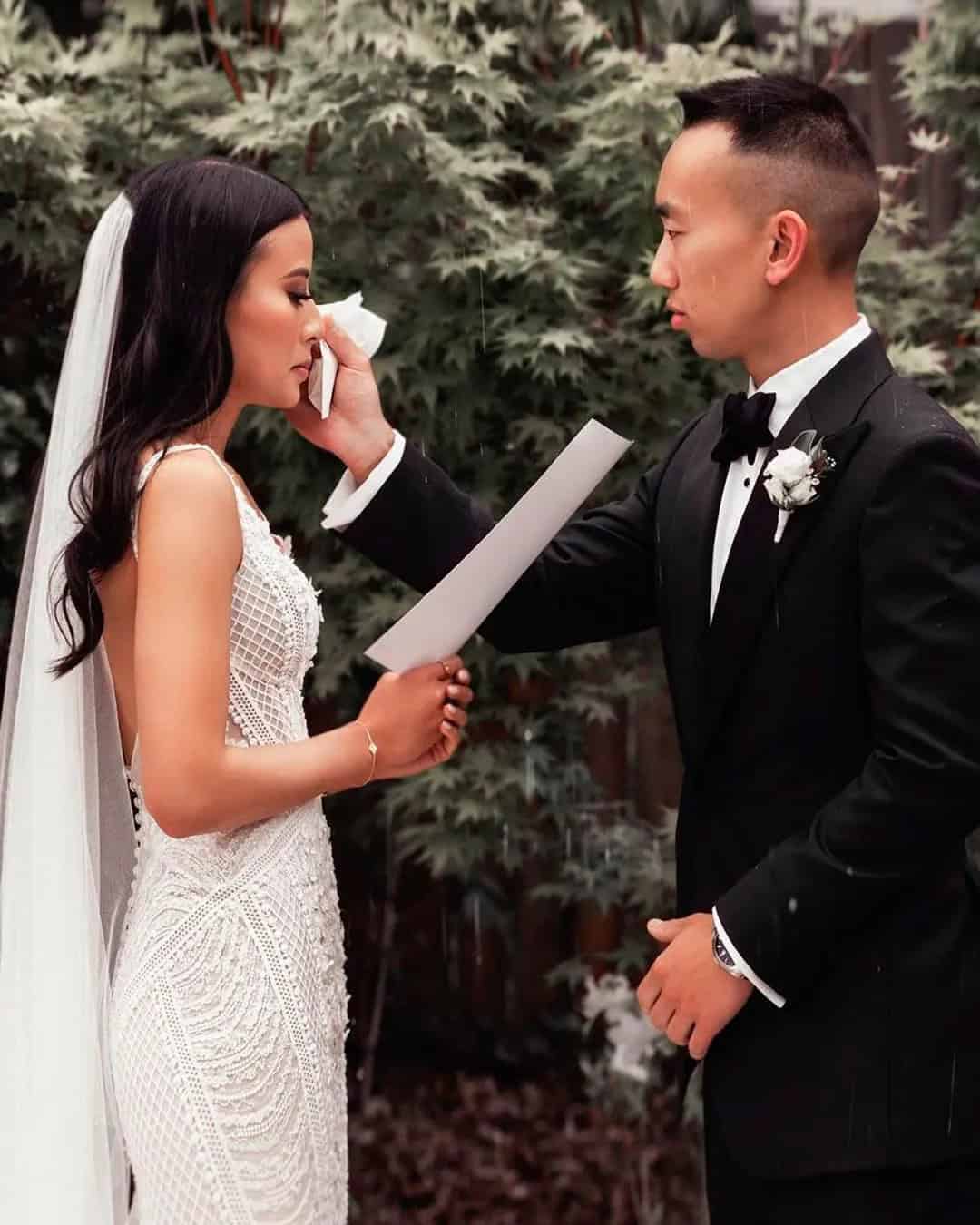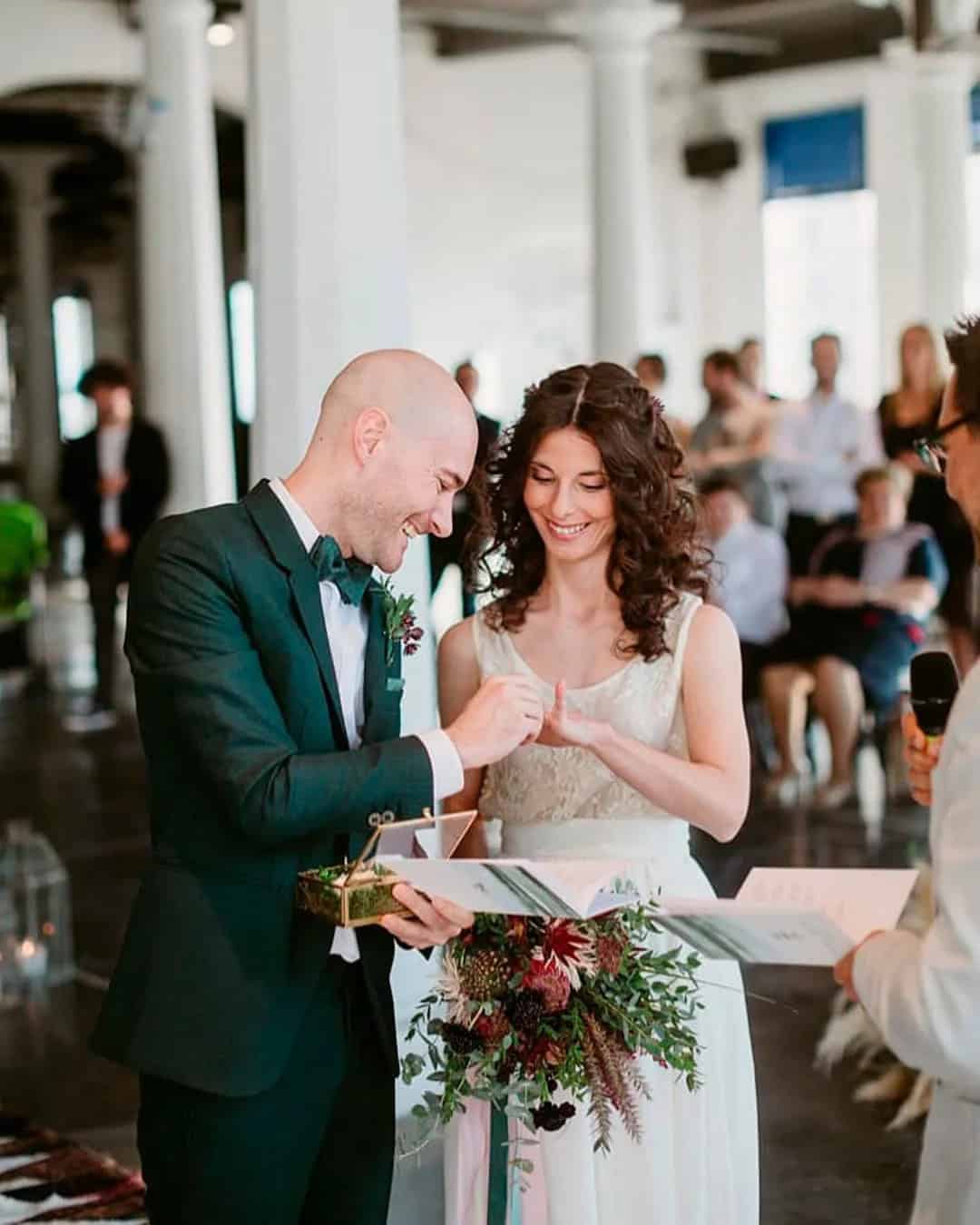When it comes to wedding vows, every culture and faith has its own unique traditions. These sacred promises are a powerful way for couples to express their commitment and love for each other. From the deeply personal to the spiritually charged, traditional wedding vows offer a rich tapestry of expression and devotion. If you’re looking to incorporate traditional vows into your special day, whether it’s from Cherokee to Catholic or something in between, we’ve got you covered.
We’ll explore examples of wedding vows from various faiths and cultures, including Protestant, Jewish, Catholic, Eastern Orthodox, Hindu, Muslim, Non-Denominational, Quaker, Unitarian, Baptist, Buddhist, Celtic, and more. You’ll also find inspiration for writing your own traditional wedding vows, along with tips and tricks to make the process easier.
Whether you’re looking to borrow from tradition or create something entirely new, we’ll provide guidance and resources to help you craft vows that truly reflect your love story.
Brides Often Ask
What is the traditional order of wedding vows?
Typically, a wedding ceremony follows a well-worn script, where the officiant guides the couple through a ritualized exchange of vows. This customary sequence usually begins with heartfelt declarations of devotion and dedication, gradually giving way to the symbolic act of exchanging rings.
What are the 7 promises of marriage?
While the specific vows may differ depending on cultural or personal context, many marriages are built upon a foundation of seven key promises. These commitments typically involve a pledge to love and cherish one’s partner, as well as a commitment to honor, provide for, protect, remain faithful to, and support each other through life’s joys and challenges.
What are the traditional wedding vows to obey?
While traditional wedding vows that emphasize obedience have seen a decline in popularity, they still retain significance in certain cultural or religious contexts. In these settings, the phrase ‘to obey’ may continue to feature prominently, serving as a reminder of the couple’s commitment to one another.
Protestant Wedding Vows
Protestantism’s profound richness is evident in its widespread following, boasting over 900 million adherents globally. The religion’s diversity, stemming from numerous branches, offers a treasure trove of vow inspirations for couples seeking unique Christian wedding vows. With such a vast array to draw from, couples can curate a promise that perfectly reflects their love story.
Basic Protestant Vows
Episcopal Vows
Episcopal wedding vows are a timeless choice, drawing inspiration from the nearly two million Episcopalians in the United States, as well as those seeking non-religious ceremony inspiration. By omitting references to God, couples can create their own unique and meaningful promises to one another.
For instance, ‘I, (name), take you, (name), to be my wife/husband, to have and to hold from this day forward, for better or for worse, richer or poorer, in sickness and health, to love and cherish until we are parted by death.’ This promise is a solemn declaration of one’s commitment. Similarly, ‘I vow to be your faithful husband/wife, recognizing marriage as a lifelong union not entered into lightly.
I commit to mutual understanding, encouragement, and support; for the purpose of building a life together, raising children, and nurturing their physical and spiritual growth.’ These vows serve as a heartfelt expression of devotion.
Methodist Vows
Within the Methodist tradition, couples can choose from two beautiful approaches to their wedding ceremony. One option is to recite traditional vows, while the other involves the officiant speaking and the couple responding with a simple yet timeless affirmation of love. The classic phrase ‘I do’ becomes a powerful declaration as the couple promises to stand together through life’s joys and challenges.
For instance, in the first approach, the couple might say: ‘I take you, (name), to be my husband/wife from this day forward, to join with you and share all that is to come, and I promise to be faithful to you of God and this congregation to declare your intent.’ Alternatively, the officiant might ask questions, such as ‘Will you have this woman/man to be your wife/husband, to live together in holy marriage?
Will you love her/him, comfort her/him, honor, and keep her/him in sickness and in health, and forsaking all others, be faithful to her/him as long as you both shall live?’ To which the couple would respond with a heartfelt ‘I do’, sealing their commitment to one another.
Presbyterian Wedding Vows
The traditional Presbyterian wedding vows offer a serene and elegant approach to exchanging marital promises. As an alternative to the classic Christian wedding vows, this option allows couples to speak their own vows or respond to the officiant’s words. The language used is often poetic and emphasizes the couple’s commitment to each other, as well as their devotion to God.
For example, the Presbyterian wedding vows typically involve a promise to love and cherish one’s partner, in both good times and bad, until death do them part.
The following passage illustrates this beautiful expression of marital love: “I, (name), take thee (name), to be my wedded husband/wife, and I do promise and covenant, before God and these witnesses, to be thy loving and faithful wife/husband; in plenty and in want, in joy and in sorrow, in sickness and in health, as long as we both shall live.” In this vow, the couple is asked to respond with a simple “I do” after the officiant’s questions.
This intimate and heartfelt exchange serves as a powerful reminder of the couple’s commitment to one another and their faith.
Lutheran Vows
Lutheran wedding vows offer a unique blend of tradition and modernity. The language used is perfect for couples seeking a poetic and powerful way to express their commitment to each other. This tradition is characterized by its focus on faithfulness, honesty, respect, trust, help, care, and forgiveness. In the eyes of God, the couple’s love is not just about avoiding changes but navigating them successfully. The vows themselves are a beautiful expression of this commitment.
‘Our miracle lies in the path we have chosen together, (name). I enter into this marriage with you knowing that true magic of love is not to avoid changes but to navigate them successfully. Let us commit until death parts us, and may our love for each other be a reflection of God’s unwavering commitment to us.
I, (name), take you, (name), to be my wife/husband, and these things I promise you: I will be faithful to you, honest with you; respect, trust, help, and care for you.
I will share my life with you, forgive you as we have been forgiven, and strive to better understand ourselves, the world, and God with you. Through the best and worst of what is to come, and as long as we live, may our love be a testament to God’s enduring love for us.
Jewish Wedding Vows
The traditional Jewish wedding vow is a poignant and significant element of the grand, celebratory Jewish wedding ceremony. The bride and groom recite a single, powerful sentence that binds them to their faith and to each other. This sacred phrase serves as a reminder of the couple’s commitment to one another and to their religious heritage.
One of the most iconic traditional vows is ‘Haray at mekudeshet lee beh-taba’at zo keh-dat Moshe veh-Yisrael,’ which roughly translates to ‘Behold, you are consecrated to me with this ring according to the laws of Moses and Israel.’ This timeless vow is a beautiful expression of devotion and loyalty. In modern Jewish ceremonies, it’s not uncommon to come across a unique variation of this tradition – the ring vow.
This promise typically goes something like: ‘With this ring, you are made holy to me, for I love you as my soul. You are now my wife.’
Catholic Wedding Vows From The Bible
Eastern Orthodox Vows For Wedding
In Eastern Orthodox weddings, a unique tradition is observed where couples often take a solemn vow without uttering a single word. This quiet moment allows them to introspectively reaffirm their faith and commitment to each other. While this approach remains prevalent, some Russian ceremonies do incorporate spoken vows.
For instance, one traditional example goes like this: “I, (name), take you, (name), as my wedded wife/husband and I promise you love, honor, and respect; to be faithful to you and not to forsake you until death does us part. So help me God, one in the Holy Trinity and all the Saints.” This spoken vow serves as a powerful expression of devotion. Furthermore, a traditional prayer is recited three times, symbolizing the union between the couple, reinforcing their bond.
Hindu Traditional Wedding Vows
During a Hindu wedding ceremony, it’s not traditional to make formal vows like in other cultures. Instead, the couple takes part in the Seven Steps, also known as the Saptha Padhi, where they commit to each other through a series of meaningful declarations. These promises are woven into the fabric of the ceremony and reflect the couple’s intentions for their future together.
For example, they might promise to prioritize healthy living, develop their physical, mental, and spiritual well-being, increase their wealth through righteous means, and acquire knowledge, happiness, and harmony through mutual love and trust. The Seven Steps also include promises to have strong, virtuous, and heroic children, practice self-restraint for longevity, and remain lifelong partners through the union.
Muslim Wedding Vows
In many Muslim cultures, weddings are a lavish three-day celebration where the bride often remains sequestered in her home for an entire week prior to the big day. Unlike traditional Western-style vows, Muslim weddings typically involve a Nikah ceremony, which is a unique and intimate exchange between the couple. During this ritual, the bride and groom take turns speaking individual lines that are designed to reflect their commitment to one another.
In some cases, these vows can be quite poignant, with the couple pledging loyalty, obedience, and devotion to each other. The Nikah ceremony is often infused with symbolic language, drawing parallels between the couple’s union and the concept of clothing – a motif that is woven throughout the ceremony.
For instance, a popular Quranic passage that may be recited during the Nikah is Surah Al-Baqarah 2:187, which beautifully captures the essence of this idea: ‘They are clothing for you and you are clothing for them.’ This passage not only underscores the significance of mutual support but also serves as a poignant reminder of the couple’s intertwined destinies.
Non-denominational Wedding Vows
Examples Of Quaker Wedding Oath
Quaker wedding ceremonies are characterized by their unique blend of simplicity, sincerity, and spiritual depth. As loved ones gather to celebrate the union of two people, moments of silence are punctuated by heartfelt expressions and reflections from those who feel moved to speak. A traditional wedding oath is often recited, accompanied by Quaker readings that provide a sense of connection to the couple’s commitment to one another.
The ceremony typically concludes with a beautiful promise between the couple, where they pledge to love and cherish each other ‘so long as we both shall live’ in the presence of God and their community. This solemn vow is underscored by a deeper understanding of marriage as a sacred commitment rather than a mere civil arrangement.
As Friends (Quakers) have always regarded marriage, it is an opportunity for the couple to seek divine guidance and support in their relationship.
In this spirit, they are encouraged to cultivate an atmosphere of love, respect, and humor, even in the face of challenges. Ultimately, happiness is seen as a byproduct of a deep and abiding commitment to one another.
Unitarian Wedding Ceremony Vows
Unitarians are renowned for their open-minded and accepting nature, making their wedding vows a perfect fit for couples of all faiths. Their vows often follow a call-and-answer pattern or traditional wedding vows, offering a unique blend of spiritual and secular elements.
In the Unitarian tradition, an officiant might ask: “Will you take [partner’s name] as your wife/husband, pledging to share your life openly with them, speak truthfully in love, honor and tenderly care for them, and encourage their individual fulfillment through life’s changes?” The couple would then respond with a simple yet powerful affirmation: ‘I do.
‘ Alternatively, they might opt for a more traditional vow, such as: ‘I, [name], take you, [name], to be my wife/husband; to have and to hold from this day forward, for better or for worse, richer or poorer, in sickness and in health, to love and cherish always.’
Vows For Baptist Wedding
Baptists are a Christian denomination with a strong emphasis on the authority of scripture and the significance of baptism. The traditional vows used in Baptist ceremonies share similarities with those of other Christian denominations, but with a distinct twist. Instead of saying “I do”, couples exchange vows that begin with the phrase “I will”. This unique approach underscores the importance of commitment and lifelong partnership.
In a typical Baptist ceremony, the officiant asks the couple to reaffirm their love for each other before God and witnesses. The couple’s response is a solemn promise to remain faithful and true to one another throughout their lives together. When the couple says “I will”, they are making a public declaration of their commitment to each other, surrounded by family, friends, and spiritual leaders.
Buddhist Wedding Vows
In a Buddhist wedding ceremony, the vows are often the most sacred and important part. The language used is distinct from traditional vows, making it a unique source of inspiration for couples. A typical Buddhist vow might go something like this: “I take you to be my husband/wife, partner in life, and one true love. I will cherish our friendship and love you today, tomorrow, and forever.
“This promise is accompanied by a commitment to trust and honor each other, to share in both the joys and challenges of life together. The vow also emphasizes the importance of being present for each other through all of life’s experiences. In addition to these traditional vows, Buddhist couples may also make additional promises to one another.
These might include commitments to protect life, take only what is offered, cultivate loving-kindness and honesty, use sexuality wisely, and avoid substances or practices that could cloud their perception. By making these promises, the couple acknowledges the interconnectedness of their lives with each other and with all beings, and seeks to create a harmonious and loving relationship.
Celtic Vows For Wedding
Non-Religious Vows That Also Can Be Traditional
Love stories are often filled with tradition and history. But what about wedding vows that draw from non-religious sources? There are plenty of beautiful options to choose from. For instance, love quotes, poetry, and even popular culture can be transformed into meaningful wedding promises. Take Shakespeare’s famous words, for example. His sonnets are a treasure trove of romantic sentiments that have stood the test of time.
The opening lines of Sonnet 116, ‘Let me not to the marriage of true minds Admit impediments. Love is not love Which alters when it alteration finds…’ set the tone for a powerful and enduring love. And in Sonnet 116, he writes, ‘My bounty is as boundless as the sea, My love as deep; the more I give to thee, The more I have, for both are infinite.’ These timeless words can be used as inspiration for your own unique wedding vows.
Apache Wedding Vows
As couples prepare to embark on their new journey together, they often seek vows that resonate with their values and beliefs. For those who don’t identify with traditional religious practices or want a more inclusive approach, Apache wedding vows offer a beautiful and intimate way to express their commitment to one another. These vows focus on the natural world, celebrating the beauty of the earth and its elements, as well as the celestial bodies that bring us joy.
The result is a heartfelt and tender expression of love and devotion that can be cherished by couples from all walks of life.
The Apache vows read: ‘Now you will feel no rain, for each of you will be shelter to the other. Now you will feel no cold, for each of you will be warmth to the other. Now there is no more loneliness, for each of you will be a companion to the other. Now you are two bodies, but there is one life before you.
Go now to your dwelling place, to enter into the days of your togetherness. And may your days be good and long upon the earth.’
Cherokee Wedding Vows
As the sun rises over the vast expanse of the American wilderness, we find inspiration in the ancient traditions of Native Indian Americans. These deeply moving wedding vows are rooted in spirituality and pay homage to the indigenous heritage that has shaped generations. Whether you’re celebrating a Grand Cherokee wedding or simply drawn to the rituals, these vows offer a profound and meaningful way to commit to one another.
The words, passed down through generations, speak directly to the heart: ‘God in heaven above, please protect the ones we love.’ They weave together a tapestry of reverence for the natural world – Mother Earth, Fire, Wind, and Water – asking that these sacred forces guide and nurture their union. The couple’s pledge is not just to each other, but to the universe itself, praying for harmony, true happiness, and forever-growing youthfulness in their love.
These vows are a powerful reminder of the beauty and depth of Native American culture, and the ways in which it can inform and enrich our own wedding ceremonies. As you prepare to make your own commitments, may these words inspire you to find the sacred and the beautiful in your own journey together.
Wedding Vows That Include Child
Wedding Vows To Include Stepchildren Examples
Gay Wedding Vows
Courthouse Wedding Vows
Wedding Vows For Second Marriage
When venturing into a second marriage, it’s essential to acknowledge the beauty of a new beginning. Whether sparked by the loss of a previous partner or the end of a relationship, this chapter in life presents an opportunity to rediscover the joy of love and commitment. By embracing the idea that the second time around can be just as radiant as the first, you’re affirming your trust in the institution of marriage and the power of true love.
Your wedding vows should reflect this renewed sense of hope and optimism, highlighting the happiness you’ve found and the promise of a brighter future together.
A recommitment to love is evident when exchanging vows for the second time around. It’s a testament to your resilience, adaptability, and the enduring nature of your emotions. Your words should convey the love in your heart, the joy that fills your soul, and the commitment you’re making to build a life together.
For instance, one possible approach could be: ‘I offer myself to you as a partner in this new chapter of life. I vow to cherish and respect you, through all the days of our life together, just as I did in our first journey around the sun. I commit to supporting you in good times and bad, and to nurturing the love we share.’ Another option might be: ‘God has given us a second chance at happiness, and I’m grateful for that.
Today, I come to give you my heart, my love, and my hope for our future together. I promise to bring you joy, to learn to love you more each day, and to cherish every moment we spend together.’
Most Touching Wedding Vows
Weddings often get overshadowed by lavish spending and extravagant details, but it’s the vows that truly make the ceremony special. The exchange of promises is what transforms the union from just another celebration into a lifelong commitment. When couples come together to pledge their love and devotion without conditions or reservations, the words become truly meaningful.
In this sense, the most powerful wedding vows are those that speak directly to the heart.
They’re the ones that express the couple’s deepest emotions and desires, promising to support each other through life’s joys and challenges.
One beautiful example of this is a vow that promises to be ‘your loving friend and partner.’ This kind of language conveys a sense of deep connection and mutual understanding. It’s not just about making a public declaration of love, but also about committing to support each other as individuals.
Another example is a vow that pledges to ‘care and love you until the day I die.’ This kind of promise speaks to the couple’s desire for a lifelong union, where they’ll stand by each other through all of life’s ups and downs. It’s not just about romantic feelings, but also about building a life together.
Ultimately, the most important thing is that the vows come from a place of sincerity and honesty. When couples speak from their hearts, their words can be truly powerful and moving.
Personal Wedding Vows
As couples prepare to exchange personalized wedding vows, it’s essential to remember that these promises should be tailored to the individual partner. Including names and personal attributes of one’s spouse can make the vows even more meaningful. With this in mind, we’ve included two examples below of heartfelt vows a husband might say to his wife on their wedding day.
The first example is a beautiful expression of commitment and devotion:
“By this wedding ring, you’re sanctified to me as my wife and partner in life, in accordance with the tradition of Moses. Wear me as a seal upon your arm, for our love is infinitely strong. Many glasses of water can’t quench it, nor any flood sweep it away. You are my beloved.
”
The second example showcases a husband’s promise to spend his life cultivating his love and care for his wife:
“I take you as my wife and vow to spend my life with you, cultivating my love and care for you and all living things. Our relationship is the most important thing to me; it gives me strength. I vow that I will put every effort into strengthening it with honesty, patience, and faithfulness.
For all the days, months, and years that we live together, I vow to spend every day working to be a truer version of myself, and I promise you will do the same.”
In these examples, husbands are expressing their deepest feelings and commitments to their wives. They’re not just words – they’re promises that can help strengthen a marriage over time.
Bonus: Ring Vows
Couples often seal their commitment with ring vows, whether from a religious perspective or simply as a romantic gesture. As they exchange rings, it’s common for them to accompany the act with a heartfelt line that solidifies their bond and marks the occasion. These words of devotion can be as simple yet profound as ‘With this ring, I thee wed.
‘ Or they can take on a more personalized tone, as seen in the example: ‘I, (name), give to you (name), this ring, as a symbol of my commitment to love, honor, and respect you. (name), I offer this ring to you.’ Traditional wedding vows have stood the test of time, offering couples a classic yet meaningful way to express their love and dedication to one another.
Drawing inspiration from various cultures, faiths, and beliefs, these timeless vows can be adapted or used as is to create a unique ceremony that reflects the couple’s individuality. With these samples and a little creativity, couples can craft vows that truly capture the essence of their love and commitment.
